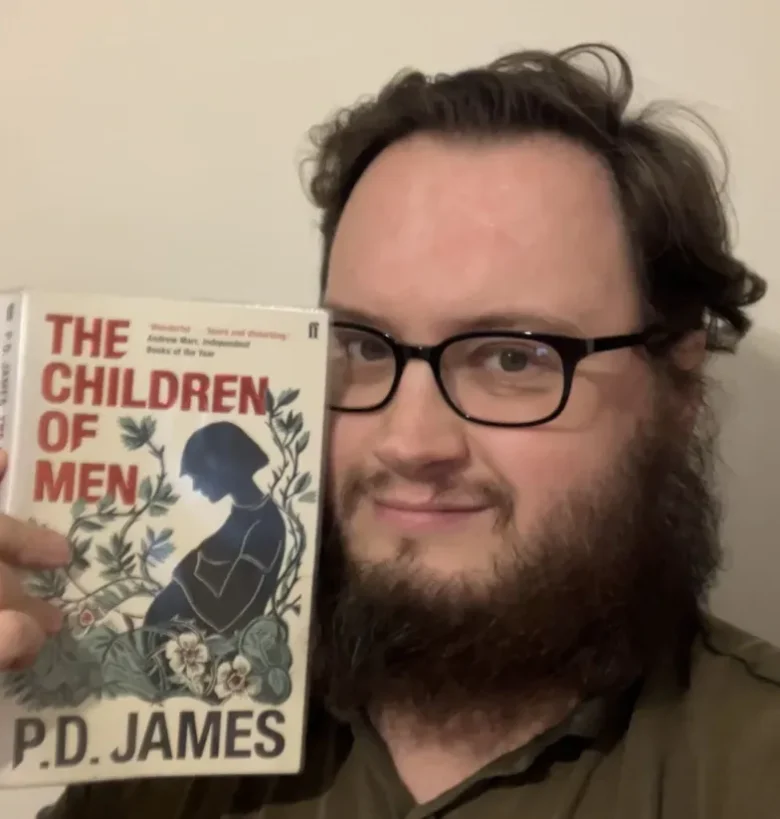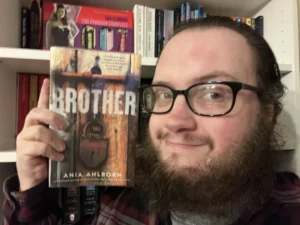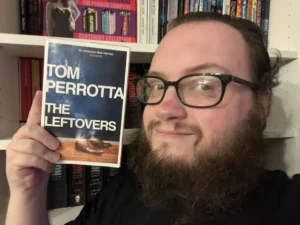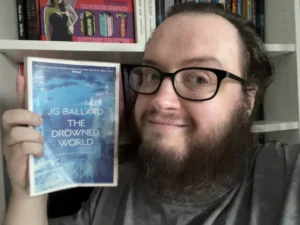While it is true that I mostly read horror novels, I do also have an affection for dystopias. That shouldn’t come as too much of a surprise, considering my very first post on this site was for Sunrise on the Reaping. Furthermore, I suppose there is also quite a crossover between horror and dystopia. Two of Stephen King’s Bachman books – The Running Man and The Long Walk – both fit into the dystopian category.
So, The Children of Men is a book that I’ve been meaning to read for quite a while. Fate sometimes makes itself known in peculiar ways, and in case it came in the form of Cineworld showing a range of older films as part of their 25th anniversary celebrations. One of the movies they showed was Alfonso Cuarón’s Children of Men from 2006. It’s worth knowing that the movie uses the novel as a jumping-off point but largely goes in its own direction from there.
P D James’s novel was published in 1992 but set in the then-futuristic 2021. In this world, no child has been born for twenty-five years because every man on the planet is infertile. Their sperm is useless. Teachers and midwives find themselves out of work while the population ages, with the unspoken belief that one day there will simply be no more humans. On top of all this, men have lost all sexual desire. Intercourse is just something they never even think of. On the other hand, this must mean that women miraculously have a lot less headaches at bed time.
This story takes place in a dystopian version of the United Kingdom where there hasn’t been an election in fifteen years. Since then, a man called Xan Lyppiatt has taken absolute control under the title the Warden of England. He has more power than any Prime Minister and monarch combined. He lives exceedingly comfortably in this role because the population are so defeated by the fact that eventually their race will die out that they have no interest in politics at all. Therefore, Xan finds himself unchallenged.
But Xan is not the protagonist of this story. That role belongs to his cousin Theo Faron. Theo is fifty at the start of the novel. His wife left him after he accidentally killed their child – before the infertility problem. He’s a former lecturer in history at Oxford. Of course, this world has little interest in learning about history. More recently, he served as an advisor to the warden, but left the role as his advice seemed to only ever fall on deaf ears.
When we meet Theo at the start of the book, he’s a broken and disillusioned man living on autopilot. Things begin to change when he is approached by a woman called Julian, who is a former student from his days at Oxford. These days, Julian is a part of a group known as the Five Fishes. They want Theo to approach Xan on their behalf – as they believe that Xan will listen to Theo – and ask for a few changes to make the country a little more democratic. Theo laughs at the suggestion that his cousin will listen to him, but he agrees to speak with Xan none the less.
Of course, in this review, I’m dancing around the whole point of the book and avoiding THE spoiler on the off chance that anybody reading this doesn’t know. Although it’s kind of revealed on the front cover of the book as well.
I remember first hearing about the film – before I knew it had been a book – and thinking “What an awesome idea for a story”. And I will say that the movie is awesome. Seeing it at the cinema a couple of weeks ago was my first time seeing it all the way through. It left me psyched up to read the book, and while I did enjoy the book, I also found myself feeling a little let down by it. Perhaps I came into it with a little too much of a build-up. I think the premise was so big, and the writing doesn’t quite live up to the premise.
My Goodreads review: ★★★☆☆ (3 stars)
Buy the Book:
These are affiliate links, which means I may earn a small commission if you buy through them, at no extra cost to you.



